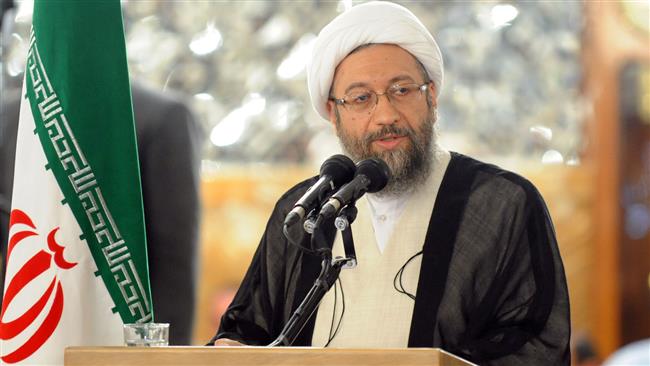Facing criticism over its detentions of dual nationals, including US citizens, Iran has tried to counter with the claim that Iranians held in American prisons must be released.
The head of the judiciary, Sadeq Amoli Larijani (pictured), said on Monday, “We remind the American [officials] of the 40 years of their violation of Iranian people’s rights and tell them that Iranian citizens held in notorious US prisons in breach of all international regulations, conventions and laws must be released in the shortest possible time.”
He added that Washington must also release Iran’s property, including $2 billion of frozen assets awarded by the US Supreme Court in April 2016 over attacks such as the 1983 bombing of the US Marine Corps barracks in Beirut, Lebanon.
Iran’s ongoing imprisonment of dual nationals has been highlighted this month by the 10-year sentence imposed on Chinese-American historian Xiyue Wang. After he sent publicly-available documents to the US, Wang was accused of “gathering secret and top secret” intelligence for the US State Department, Harvard University’s Kennedy School, and the British Institute of Persian Studies.
Others behind bars include Iranian-American oil executive Siamak Namazi and his 81-year-old father Baqer, an Iranian-Canadian who was a senior official at UNICEF, both given 10-year sentences; Anglo-Iranian charity worker Nazanin Zaghari-Ratcliffe, serving a five-year term; Iranian-Lebanese citizen and US permanent resident Nazar Zaka, sentenced to 10 years; and Iranian-American Karan Vafadari and his wife Afarin Neyssari, art gallery owners in Tehran.
On Friday, the White House — which is considering further sanctions on Iran — warned of “new and serious consequences” if the US citizens are not released.
Larijani responded, “Trump and his administration must know that threats will have no impact on Iran and that they better learn lessons from their predecessors.”
The judiciary head referred specifically to the case of Robert Levinson, a former FBI agent missing in Iran since 2007.
He insisted that Levinson had left the country and the Islamic Republic had no further information.

